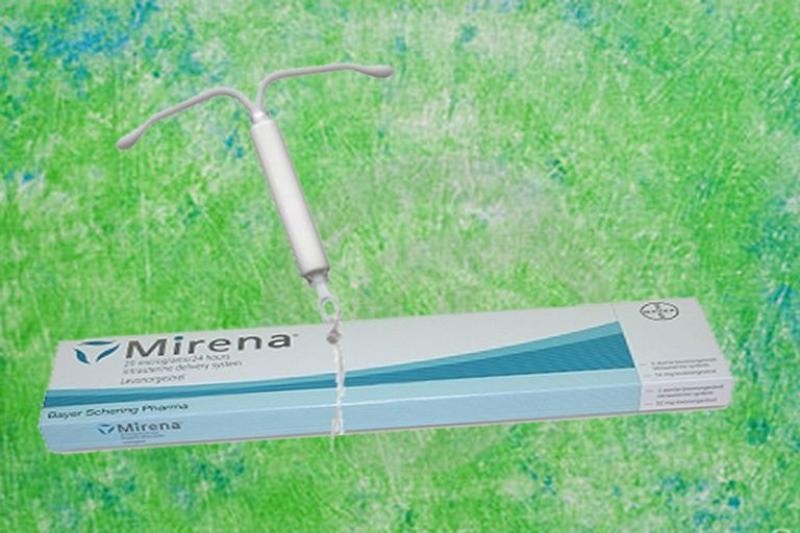How does effective this Mirena the IUD?
The Mirena intrauterine device (IUD) is a highly effective form of birth control. It is a hormonal contraceptive device that is inserted into the uterus by a healthcare provider. Mirena releases a low dose of the hormone levonorgestrel, which is a type of progestin, directly into the uterus. This hormone thickens cervical mucus, making it more difficult for sperm to reach the egg, and it also thins the lining of the uterus, which can prevent the implantation of a fertilized egg.
The effectiveness of Mirena, like other forms of birth control, is often measured by its failure rate. The failure rate is the percentage of women who become pregnant while using the contraceptive method during the first year of use. Mirena has a very low failure rate, typically less than 1%. This means that fewer than 1 out of 100 women using Mirena will become pregnant within the first year of use.
It's important to note that individual effectiveness can depend on proper and consistent use. Mirena is designed to be a long-term contraceptive option, providing protection for up to five years before it needs to be replaced.
In addition to its contraceptive effectiveness, Mirena is also used to manage heavy menstrual bleeding and, in some cases, to help reduce pain associated with endometriosis.
As with any form of birth control, it's essential for individuals to discuss their specific health history, concerns, and needs with a healthcare provider. The decision to use Mirena or any other contraceptive method should be made in consultation with a healthcare professional who can provide personalized advice based on individual circumstances.
How does the Mirena IUD function as a contraceptive method?
The Mirena IUD is a small, T-shaped plastic device that is inserted into the uterus to prevent pregnancy. It is made of a flexible plastic that contains a hormone called levonorgestrel. Levonorgestrel is slowly released into the uterus to prevent pregnancy in three ways:
- Thickens cervical mucus: Levonorgestrel makes the mucus in the cervix thicker, which makes it harder for sperm to reach the egg.
- Thins the uterine lining: Levonorgestrel also makes the lining of the uterus thinner, which makes it less likely that a fertilized egg will implant.
- Suppresses ovulation: Levonorgestrel may also suppress ovulation, which means that the ovaries do not release an egg each month.
The Mirena IUD is very effective at preventing pregnancy. It is over 99% effective, which means that less than one out of 100 women who use the Mirena IUD will get pregnant each year.
What are the potential side effects or risks associated with using Mirena?
The Mirena IUD is a safe and effective contraceptive method, but there are some potential side effects or risks associated with its use. These include:
- Irregular bleeding: The most common side effect of the Mirena IUD is irregular bleeding. This is especially common in the first few months after the IUD is inserted. The bleeding usually gets lighter and more regular over time.
- Spotting: Some women also experience spotting between periods while using the Mirena IUD.
- Pelvic pain: Some women experience pelvic pain after the Mirena IUD is inserted. This pain is usually mild and goes away on its own within a few days.
- Expulsion: The Mirena IUD can be expelled from the uterus. This happens in about 5% of women who use the Mirena IUD.
- Infection: The Mirena IUD can increase the risk of pelvic infection. This risk is highest in the first few weeks after it is inserted.
- Perforation: The Mirena IUD can perforate the uterus. This is a rare complication, but it can be serious.
If you are considering using the Mirena IUD, it is important to talk to your doctor about the risks and benefits. Your doctor can help you decide if the Mirena IUD is the right choice for you.
How does the effectiveness of Mirena compare to other forms of birth control?
The Mirena IUD is one of the most effective forms of birth control available. It is over 99% effective, which means that less than one out of 100 women who use the Mirena IUD will get pregnant each year. This is much higher than the effectiveness of other forms of birth control, such as birth control pills (91% effective), condoms (87% effective), and the diaphragm (80% effective).
In addition to being highly effective, the Mirena IUD is also a long-acting form of birth control. It can be used for up to 8 years, which means that you do not have to worry about taking it daily or monthly. This can be a major advantage for women who want a convenient and effective way to prevent pregnancy.
Overall, the Mirena IUD is a safe, effective, and convenient form of birth control. It is a good option for women who are looking for a long-lasting and reliable way to prevent pregnancy.













